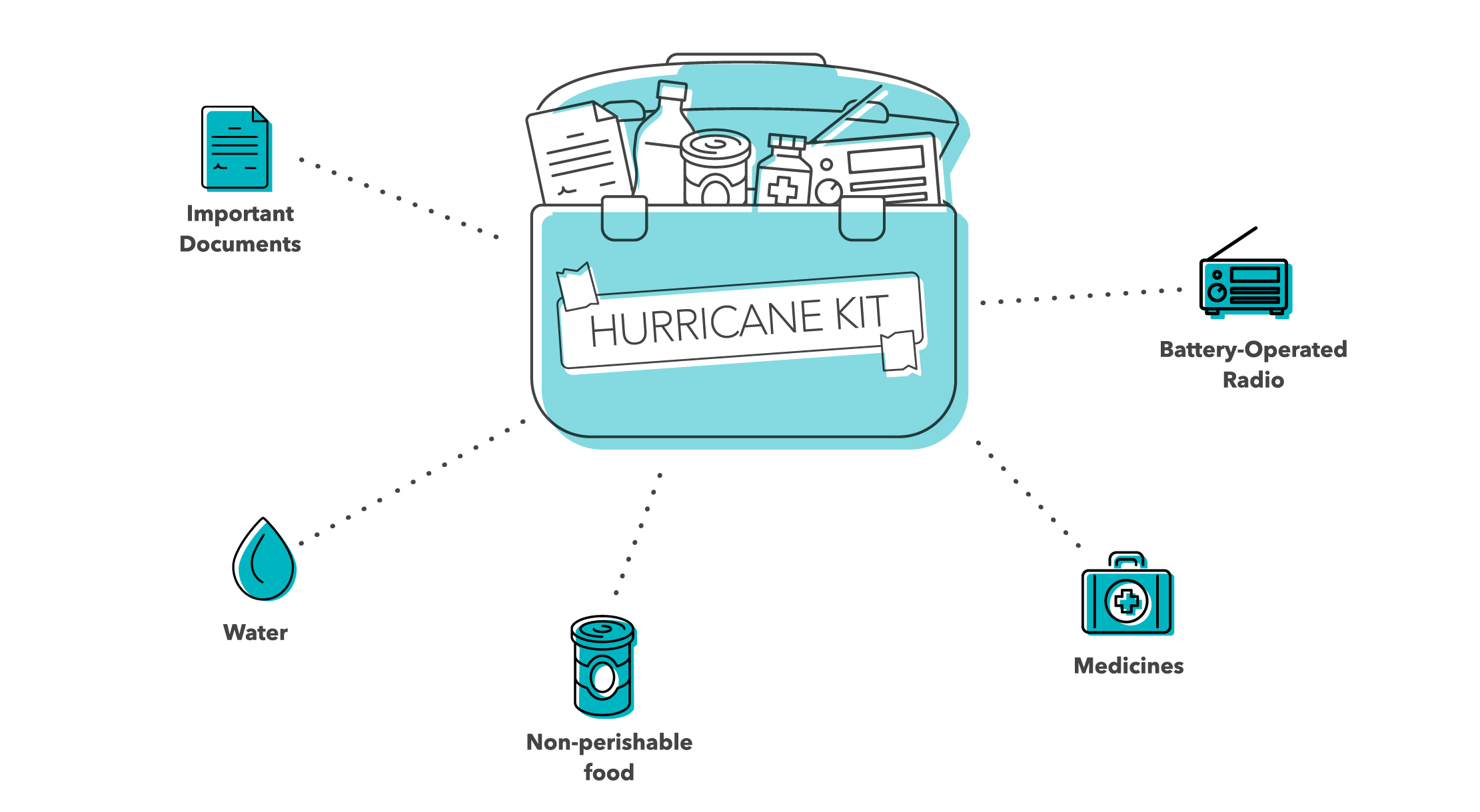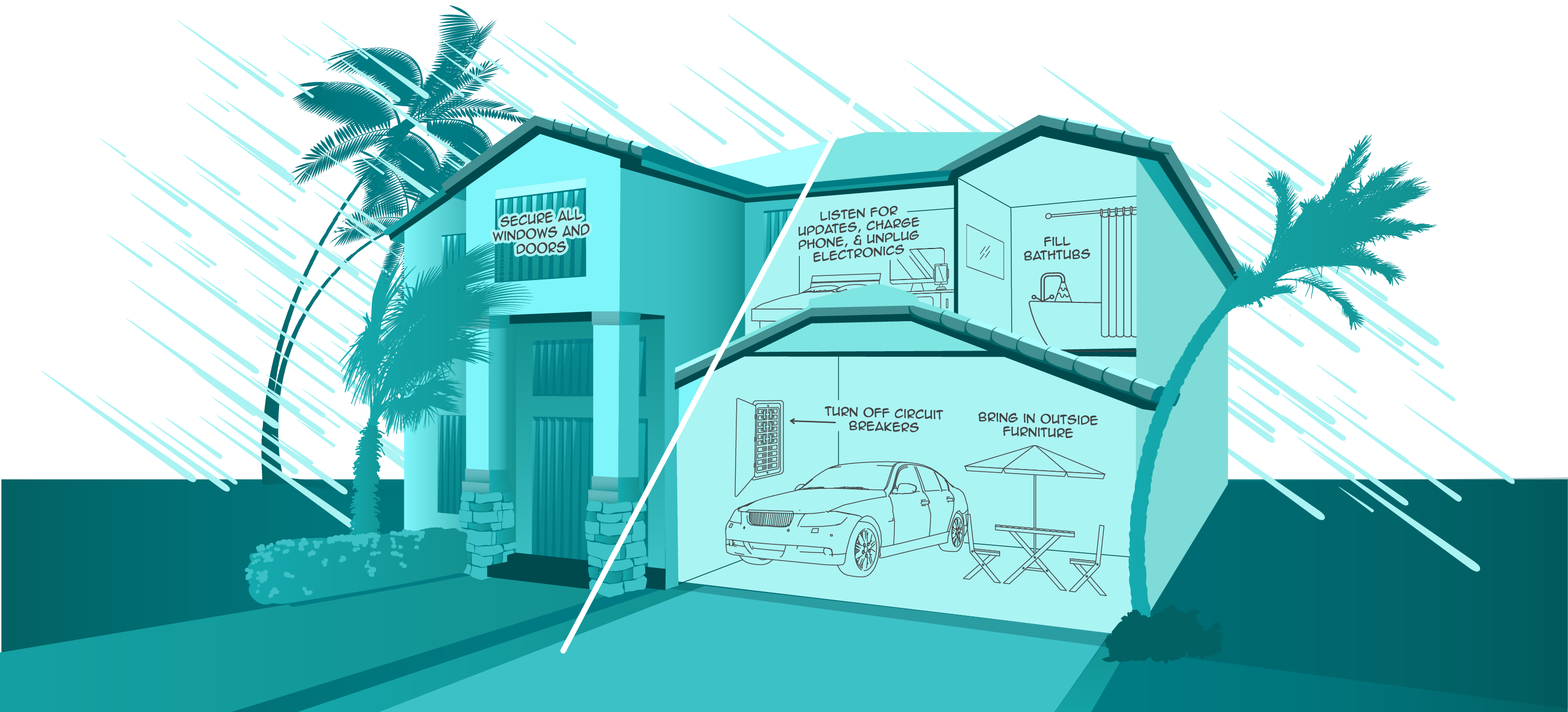Preparing for Florida’s Storm Season
Living and loving the Florida lifestyle means taking some precautions before — and after — our infamous storm seasons. These storms can bring damaging winds, tornadoes, excessive lightning, hail, flooding rain — or any combination can create havoc on our homes and lives.
Know Your Key Information
Review Your Policy
Review the declarations page of your homeowners policy for your annual hurricane deductible and to ensure you understand your coverage. (Note that Homeowners Insurance does not cover flooding).
Log in to VYRD or contact your agent if you have questions or if you would like to discuss additional coverage.
Make an Evacuation Plan
Find your local evacuation routes.
Make and communicate an evacuation plan (with contingencies) for your family.
Learn evacuation policies at your children’s school/day care, your workplace, and other key places your family is likely to be.
Make a List of Emergency Contacts
Create a list of emergency contacts and phone/text numbers (hard copy and in your cell phone) for schools, workplaces, family members, etc.
Create an Emergency Kit
Keep these items in an airtight, easy-to-carry “kit” (container or bag) and consider keeping a separate kit at your workplace during storm season. This should be full stocked by March or April. Click here for a list of recommended emergency supply items.

A great home emergency kit should contain:
- Important documents: A copy of your insurance policy number and declarations, contact information, IDs, etc.
- Water (at least 3 or 4 gallons per person)
- Non-perishable food for 3-4 days (canned meats, protein bars, dried fruits, infant foods, peanut butter, etc.)
- Medicines
- Purchase a portable radio and cell phone battery.
Prepare Your Home
Hurricane Shutters
Consider installing hurricane shutters.
Clean Your Gutters
De-clutter and repair drains and gutters so storm water can be redirected from your home.
Trim Your Trees
Prune trees during the tree species dormant season or during early spring. Remove mainly the interior branches, to allow the winds to pass through it more easily.
